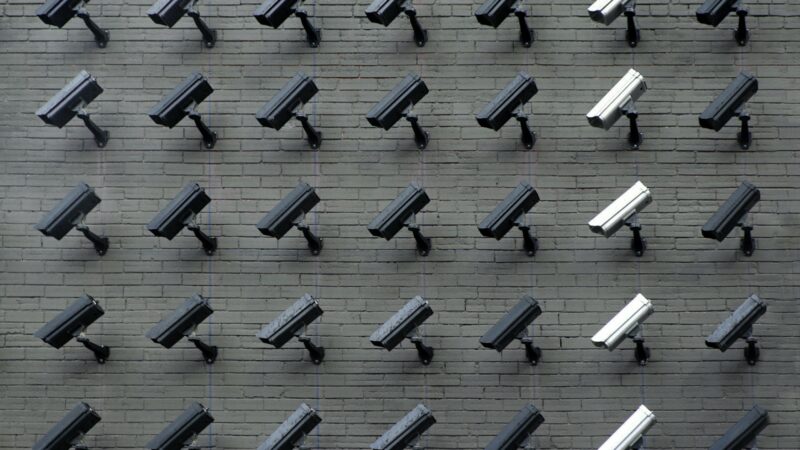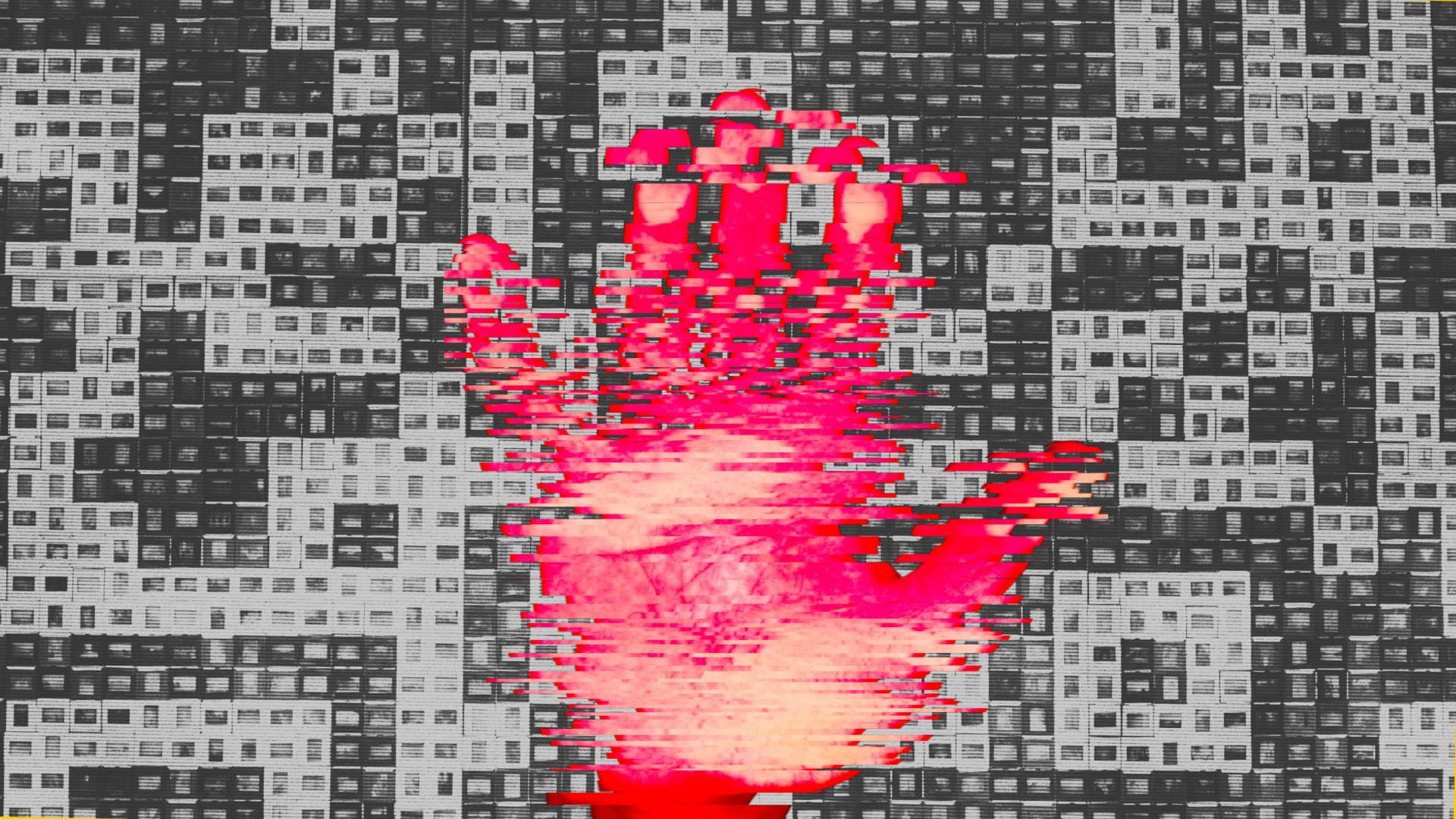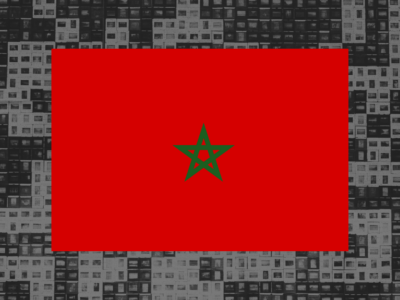
Photo by Lianhao Qu on Unsplash
The deployment of innovative and emerging technologies in Morocco has undergone a fast expansion since the outbreak of COVID-19 in December 2019, sparking several debates about the risks and problems associated with the technology in question, such as mass surveillance, discrimination, censorship, opacity and a lack of robust regulation. The pandemic has accelerated the adoption of digital technologies in Morocco, with the government introducing a variety of measures to control the spread of COVID-19 by deploying and testing emerging digital technologies and biometric systems such as digital identity, a COVID-19 contact tracing app, a vaccine passport, and the widespread installation of facial recognition software into surveillance cameras.
Over the past few years, authorities in Morocco have been ramping up efforts to adopt digital technologies while investing millions of dollars in AI-based solutions and tech-solutions, based on the idea that new technology is always the best solution and can solve all problems. The authorities say that their goal is to promote economic growth, increase digitalisation, and strengthen the country’s innovation ecosystem through the new Maroc Digital 2020 strategy and the creation of the Digital Development Agency. However, these emerging technologies, coupled with the strong political and military presence in public life, are harming Morocco’s human rights far more than the economic development they promote, and threatening the protection, promotion and enjoyment of human rights.
Although the Moroccan constitution protects freedom of expression and the right to privacy, it also allows for the surveillance of private communications in certain circumstances, with judicial approval. There are many ambiguous areas involving the discretionary powers granted to judges and intelligence agencies, as well as challenges related to the judiciary's lack of independence and the lack of public scrutiny and proper oversight over the work of intelligence services and their operations. Morocco also has a national regulation for the protection of personal data in place (No.09-08 of 2009), but the law contains vague and broadly defined concepts that would exempt personal data collected and processed in the interest of national defense and the state's internal or external security from protection.
In recent years, Morocco has seen increasing reports of journalists, political activists, and human rights defenders having been unlawfully targeted by NSO’s pegasus spyware. These people were subsequently detained, prosecuted on politically motivated charges, tortured and ill-treated. Among them is prominent activist and investigative journalist Omar Radi, who was arrested multiple times and jailed for six years after a judicial process marred by violations of his fair trial rights.
In the context of the global health situation, digital surveillance enabled the Moroccan authorities to extend their authoritarian reach by silencing the voices of popular dissent, independent media, and opposition figures. This comes with rising fears that digital surveillance will be sustained beyond the end of the COVID-19 crisis.
Facial recognition technology
Moroccan authorities have placed the regulation of biometric facial recognition software in the hands of the Moroccan National Commission for the Control of Personal Data Protection (‘CNDP’), which has announced a seven-month moratorium on its use by public or private entities as of September 2, 2019 — a significant step forward in setting guidelines for the use of biometric authentication systems in general and facial recognition technologies in particular.
CNDP raised concerns over the technology’s impact on people’s privacy and fundamental rights and announced the need for extended consultations with public and private stakeholders, civil society representatives, and local and international experts. While CNDP has extended the moratorium on the use of biometric facial recognition until the end of 2020, there were no further reports about banning biometric systems beyond 2020.
#Morocco is listed as country using #Chinese facial recognition linked to public security/surveillance objectives .
@saillabs #securtiy #surveillance https://t.co/7XuKk9jgUc— Ali Zoubeidi (@DrAZoubeidi) January 22, 2020
In April 2021, the Ministry of Interior reportedly distributed a non-public call for tenders worth half a billion Moroccan dirhams to equip drones and CCTV cameras with facial recognition systems in Casablanca to monitor citizen movement, limit “delinquency,” and detect persons who do not wear masks or respect COVID-19 social distancing measures. The biometric system will also rely on centralized data centers, databases, and algorithms that analyze citizens’ movement and behaviors.
Face detection technology poses a profound threat of violating an individual's fundamental right to privacy through increased and potentially large-scale exploitation of personal data, some of which are sensitive. Without adequate control mechanisms regulating the acquisition and use of facial recognition, surveillance and monitoring tools in public spaces represent a real threat to the right to free association, free expression and other civil liberties of millions of citizens in the country. Indeed, in its deliberation in 2019, CNDP stressed on the “need to have a robust regulatory framework put in place in Morocco for the use of facial recognition to ensure the technology respects individual privacy.”
Vaccine passport
In October 2021, the Moroccan authorities imposed mandatory vaccine passes, also known as “vaccine passports,” as a precondition for entering all workplaces and public places, and for domestic travel between Moroccan cities, under the guise of curbing COVID-19 spread, reviving the economy, and preventing the emergence of new variants. Those who do not comply with the new measures would face consequences such as a deduction from their salaries and dismissal from their jobs. In response, The Moroccan Justice and Development Party, the United Socialist Party (the opposition), the Bar Association, and the Moroccan Association for Human Rights (the largest human rights organization), announced in numerous statements their rejection of the decision, considering it “contrary to the constitution and restricting freedoms.”
More than 30,000 human rights defenders, activists and politicians in Morocco signed an online petition calling on the government to revoke the vaccine passport given the restrictions it poses on the right to movement and other fundamental rights, and demanding that the passport be voluntary as the initiative’s efficacy in combating COVID-19 is in question.
After calls from local civil society groups, thousands of protesters took the streets in several cities including Casablanca, Fez, Marrakesh and Meknes, denouncing the compulsory imposition of the vaccine passport. Police responded with an iron fist, arresting dozens of protesters, and prosecuting four activists for “non-compliance with the health and state of emergency” and “insulting security forces and public officials while performing their duties.”
Tangier, Morocco Anti Vaccine passport protest 👏 pic.twitter.com/Zy50tPgNkN
— Muslima (@M11slima) October 31, 2021
While the CNDP considers that a vaccine passport is a proportionate and necessary means of controlling the spread of COVID-19, and does not involve the risk of automatic tracking or access to personal information, nevertheless human rights activists and local civil society organizations remain unconvinced that such initiative will not entail large-scale data collection and processing, posing a threat to the protection of personal data.
So…what is the way forward
While data-driven technologies can add great value, they carry very significant risks for human dignity, autonomy and privacy and the exercise of human rights in general if not managed appropriately. The Moroccan government should not use COVID-19 as an excuse to implement or expand existing systems that will have long-term consequences and may lead to mass surveillance practices without proper due diligence and human rights impact assessment. Morocco has to ensure that new and emerging technologies are designed, developed, deployed, and regulated in a way that enables, rather than undermines, human rights standards and principles in the country.




